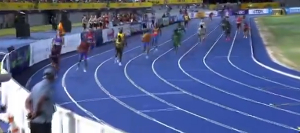- Home - News
- TWI News | TV
- Polls
- Year In Review
- News Archive
- Crime & Punishment
- Politics
- Regional
- Editorial
- Health
- Ghanaians Abroad
- Tabloid
- Africa
- Religion
- Election 2020
- Coronavirus
- News Videos | TV
- Photo Archives
- News Headlines
- Press Release
General News of Thursday, 18 March 2004
Source: GNA
Peprah's duties were under superior instructions - Counsel
Accra, March 18, GNA - Counsel for Kwame Peprah, former Minister of Finance, told an Appeal Court in Accra on Wednesday that his client was a law-abiding citizen, who carried instructions of his superior officers in the performance of his duties.
He said Peprah discharged his duties faithfully, believing that it was lawful for him to do so and that his conduct was not going to cause financial loss, hence acted under superior orders.
The Counsel, Nana Adjei Ampofo was continuing with his argument in defence of an appeal filed at the Appeal Court for his client. The appeal was basically challenging the appellant's conviction and a four-year term sentence.
The three-member panel of the court was presided over by Mr Justice F. M. Lartey with Mr. Justice S.T. Farkye and Mr. Justice J.C. Amonoo-Monney as members.
Mr Osafo Sampong, Director of Public Prosecutions, represented the State.
An Accra Fast Track High Court presided over by the Late Mr Justice Dixon Kwame Afreh on Monday, April 28, 2003 sentenced three former top public officials to various terms of imprisonment for their involvement in the Quality Grain Company case.
They were charged with conspiracy and causing financial loss of 20 million dollars to the State in a rice project at Aveyime in the Volta Region.
Nana Ampofo, who argued on the Constitutionality of the charge, said, "all the accused persons were innocent".
He said the project was that of the Government that came out of Former President Jerry John Rawlings' tour of the United States and was dear to the heart of the then Government.
Counsel stated that the Trial Judge erred in saying that the appellant had not led enough evidence to prove that he acted on superior orders.
According to him, there was evidence from the Prosecution's own witnesses and former Vice President John Evans Atta Mills that the actions of his client and the other accused persons were with the approval of the Cabinet, the Vice President and the President. He said the Trial Judge did not adequately consider the defence of the appellant that his actions were those of an Executive President and authorized under the Constitution of Ghana, and that he was only an officer who was faithfully implementing Executive policy. Counsel argued that the Trial Judge's equation of wilfully with reckless was a misdirection, adding "because from the enactment wilful did not mean reckless".
He explained that the heavy reliance of the Trial Judge placed on cases from foreign jurisdictions disabled him from understanding the true meaning and import of the law under which the appellant was charged.
Counsel said: "The Trial Judge erred in holding that the fact that the total exposure of Government was recoverable, plus interest and profit did not mean there was no financial loss to the State".
He said the statement of the Trial Judge that "the issue is not whether the State can recover the sums involved or a world class mill has been installed, but the State has suffered a financial loss in the sense of having been made to pay more than the project actually cost", clearly showed that he was giving the meaning that was not ordinary to causing financial loss to the State.
Counsel said the Trial Judge's further statement that "it is not necessary for me to consider whether the project is viable and will make profit if properly managed", also showed that he did not understand the issue before him.
He argued that the Trial Judge erred finding that there had been financial loss to the State, when the evidence was that the entire exposure of Government plus interest and profit could be recovered from the project.
According to Counsel, the trial Judge erred in overruling the submission of no case made on behalf of the appellant, and relying on evidence that came after his wrongful overruling of the submission of no case.
Hearing continues on Tuesday, March 30.










